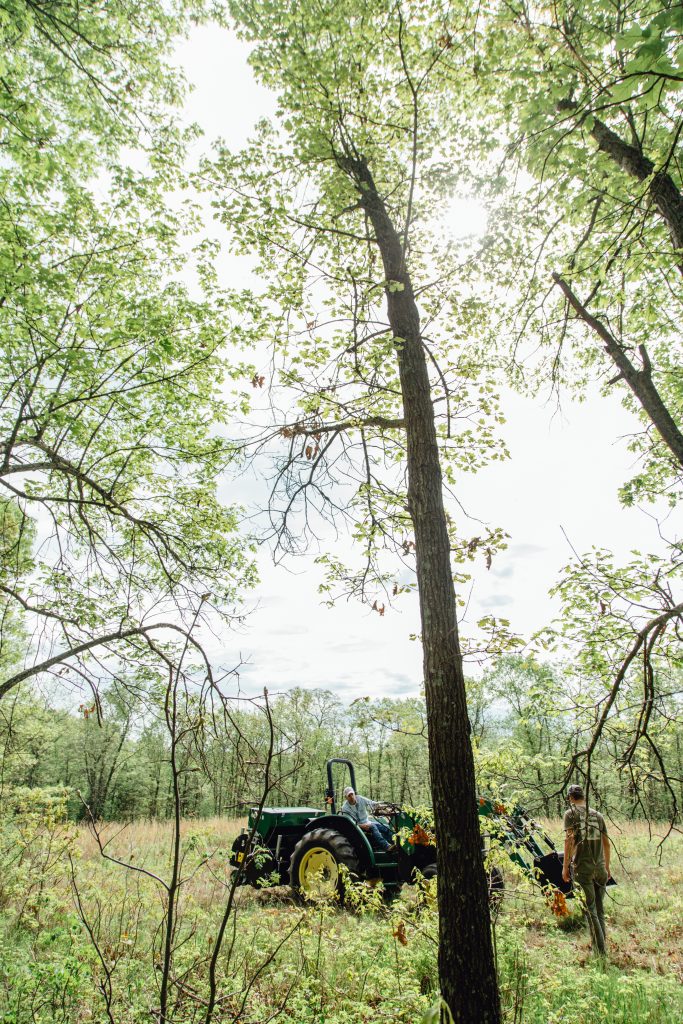The Property Litmus Test
Before you lease or buy property for wildlife, put it through its paces first.
A recent survey by the American Hunting Lease Association saw 53% of the 2,201 respondents report that they currently hunt on private land with landowner compensation. Most of the respondents, 58%, believe leasing will play a vital role in hunting’s future. Purchasing land for hunting is also increasingly popular.
If you or a group of hunting associates are considering purchasing or leasing a hunting property, thoroughly reviewing the investment before signing on the dotted line is necessary.
Budget and Location
Assuming you have funds available for the lease or purchase, first take a big picture assessment. What is the current wildlife situation? Creating a wildlife Garden of Eden often starts with basic building blocks of deer, wild turkeys, small game and upland game. Land with limited game populations must rely on wildlife dispersion. That could take time depending on the property’s characteristics.
Next, how close do you live to the property? Leasing or owning property a day or more drive away limits your ability to monitor and interact with the land.
Lastly, review all roads around the property. Highways and busy county roads could create travel barriers to wildlife movement. Properties along busy four-lane byways are especially challenging. These are clear danger zones for game trying to move between habitats. We all have heard horror stories about land managers letting bucks grow for years only to discover them dead on the roadside. Rural properties surrounded by gravel roads minimize this potential.
Habitat Diversity
Most wildlife species prefer “edge” habitat, property with a sound mix of diverse features and age structure. While each property may be different, a good balance might include putting about 5% of the land into nutrition, perhaps food plots. Another 30% should be set aside as a sanctuary – a place off-limits to hunting pressure.
The remaining property might be segmented for more refuge, additional food or commodity use. Lessees must negotiate with landowners on these percentages. If you own the property, the commodity aspect is just as critical. Renting land for farming or grazing provides income. Some states also require land be kept in agriculture to receive tax breaks. The key question: does the property have enough room for this balanced use?
In addition to farming, heavily timbered properties might also lend themselves to forestry practices, such as timber harvest and clearing. This, along with practices such as hinge cutting certain tree species, creates browse and regeneration opportunities for beneficial vegetation.

Inventory the land’s water sources. Having reliable sources, some cloaked in the sanctuary setting, helps ensure game stays on the property and limits roaming.
Neighbor or Landowner Relations
Good neighbors make good management partners. The same is true of the landowner from whom you lease. You may not get to know either on a personal level until after a year or more, but first impressions say a lot. Querying other landowners and hunters in the area offers insight on what landowners might be management partners.
With a landowner lease agreement, discuss the possibility of farming for food plots, purchasing standing crops to leave for food, postponing grazing until after hunting season and other issues you see affecting hunting success.
For neighbors, investigate whether they already manage land for hunting success, hunt with a mindful attitude regarding balanced wildlife populations and appear easy to get along with.
Get Help
Questions abound when considering a hunting property lease or purchase. Your NWTF chapter or district biologist may have insights to help you best close a deal. Local USDA Natural Resources Conservation Service offices also offer expert advice. Finally, consider consulting with a wildlife property land management professional.
